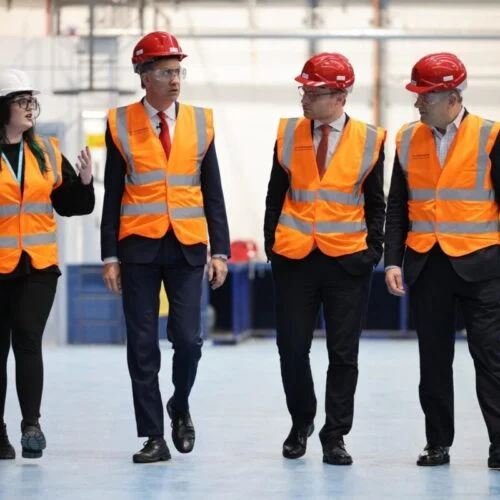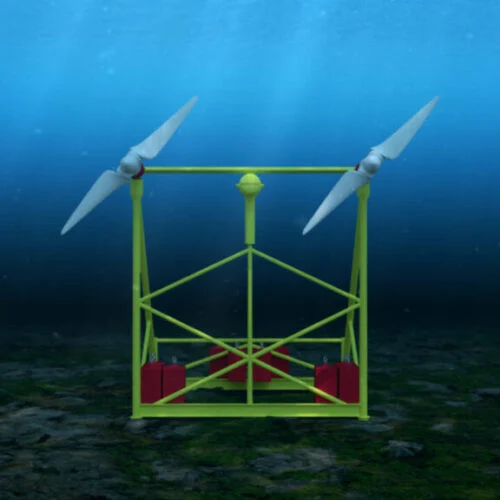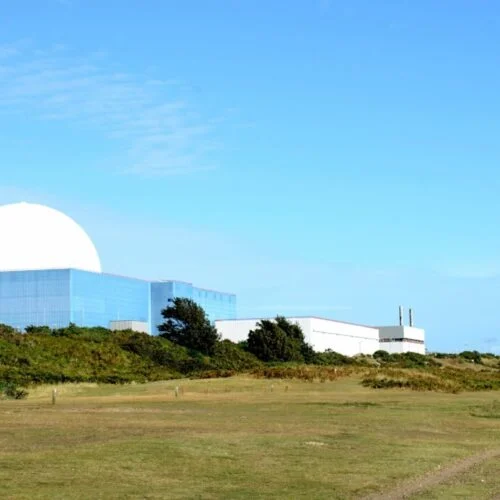The UK government is remaining steadfast in its commitment to clean power despite arguments that this resolution threatens the UK’s steel industry.
In a piece written for the Observer, energy secretary Ed Miliband writes that “siren voices” want to “knock us off course”, and that they would “make up any old nonsense and lies to pursue their ideological agenda, the latest example being their attempt to use the crisis facing the steel industry for their deeply damaging agenda”.
Miliband said that higher energy prices plaguing the UK’s steel industry are the result of “not too much clean energy, but too little”.
Miliband’s article is a response to arguments by political opponents and some trade unions that his clean power agenda is damaging British industry and keeping energy costs high.
Both the Conservative Party and Reform UK have pledged to scrap the 2050 net zero target signed into law by Conservative prime minister Theresa May in 2019. Reform UK ran during the election on this platform, but the Conservative approach has changed, with party leader Kemi Badenoch taking on the anti-net zero stance earlier this year.
Net zero and the North Sea
Workers’ union Unite has also slated policies introduced by the current government that will divert away from North Sea oil and gas production, saying that the energy transition threatens thousands of jobs. However, the union does not suggest that oil and gas is the way forward, just that the government is not providing enough support through the energy transition.
To give up on net zero would, Miliband said, “forfeit the clean energy jobs of the future and sell future generations down the river by simply shrugging their shoulders at the prospect of climate breakdown”.
Miliband wrote that “the argument for the clean energy transition is not just the traditional climate case but the social justice case too”, stating “there can be no national security without energy security, and dependence on fossil fuels has left us at the mercy of global markets we do not control”.
In a move that some clean energy advocates criticised, the government has also included allowance for oil and gas, including from the North Sea, to “remain an important part” of the energy system “for some time to come”.
At the same time, the drive for clean power is set to become a major source of employment in the UK, with the government setting an intention to create thousands of new apprenticeships in the clean energy industry and launching a skills passport to help North Sea workers transition away from the oil and gas industry.
Analysis by the Energy and Climate Intelligence Unit (ECIU) published a year ago showed that UK oil and gas production has been lower than demand for roughly 20 years, and much of the North Sea’s output is exported, so the UK currently imports 60% of its gas consumption and over 90% of the oil-based fuels in use.
Dr Simon Cran-McGreehin, head of analysis at ECIU, called new exploration in the North Sea (where Reform UK’s energy policy would focus) “largely irrelevant” for energy security.
Reuters has reported on the North Sea’s output decline, stating that in 2000, the North Sea basin was producing 4.4 million barrels of oil equivalent per day (boed), which had dropped to 1 million boed by 2024. By 2029, it is set to decline to 660,000 boed.
This runs counter to Reform UK leader Nigel Farage’s claims, as he tours UK counties ahead of mayoral and local elections, peddling anti-clean energy rhetoric, that the UK can and should be self-sufficient in oil and gas.
Backing Miliband’s argument, Ashok Sinha, CEO of climate solutions charity Ashden, said: “The future frontier for energy security and delivering cheaper bills is not the North Sea, but our cities, towns and villages.
“Candidates at the forthcoming local elections should rise to this challenge to compete on how they will bring the clean industrial revolution to their patches, rather than peddling the dangerous pipedream of oil and gas dependency.”






